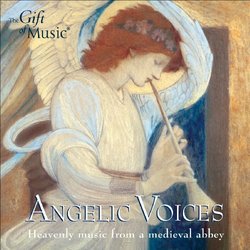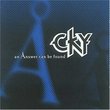| All Artists: The Oxford Girls' Choir Title: Angelic Voices Members Wishing: 1 Total Copies: 0 Label: The Gift of Music Original Release Date: 1/1/2002 Re-Release Date: 3/4/2005 Genres: Folk, Classical Style: Opera & Classical Vocal Number of Discs: 1 SwapaCD Credits: 1 UPC: 658592102826 |
Search - The Oxford Girls' Choir :: Angelic Voices
 | The Oxford Girls' Choir Angelic Voices Genres: Folk, Classical
I saw so great a brightness. Medieval visions in music composed nine hundred years ago by Abbess Hildegard of Bingen, one of the most extraordinary creative personalities of her time. Timeless music sung mainly by girls vo... more » |
Larger Image |
CD Details
Synopsis
Product Description
I saw so great a brightness. Medieval visions in music composed nine hundred years ago by Abbess Hildegard of Bingen, one of the most extraordinary creative personalities of her time. Timeless music sung mainly by girls voices with medieval instruments - psaltery, bombarde and organistrum - creates an atmosphere of calm reflection. Angelic voices sing music of simple grandeur and inner strength from the chapel of an Oxford convent. 'In the third year of my life I saw so great a brightness that my soul trembled ... I kept seeing this way until my fortieth year when I was forced by a great pressure of pains to write about the visions I had seen and heard. I brought forth songs with their melody, in praise of God and the saints, without being taught by anyone, and I sang them too, even though I had never learned either musical notation or any kind of singing'. Hildegard of Bingen As a nun, visionary, playwright, poetess, naturalist and composer, Hildegard of Bingen (1098-1179) was one of the most extraordinary creative personalities of the Middle Ages. From her youth she experienced mystical visions of such power that their vivid imagery and musical overtones transcend the centuries between her time and our own. She recounted her visions in a book she called Scivias (Know the Ways), which was illustrated by evocative hand-painted miniatures, and her inspired songs were collected in a work entitled The symphony of the harmony of celestial revelations. Hildegard was responsible for both the texts and melodies of her songs. 'When the words come', she wrote, 'they are merely empty shells without the music. They live as they are sung, for the words are the body and the music the spirit'. Both the music and lyrics are extraordinarily free by the standards of the time. The melodies range from the finely-spun simplicity of Laus Trinitate (track12), to the breathtaking virtuosity of O vos angeli (track 1), with its stratospheric high notes and sensuous, curvilinear phrases. The songs sing of the majesty of the kingdom of God (O quam mirabilis, track 5), the guiding force of the angels (O vos angeli), the blessed Virgin Mary (O viridissima virga, track 6), and the eternal struggle between good and evil (the morality play Ordo Virtutum, track 14, which includes two spoken poems for the Devil plus his terrifying rattle). Above all, they radiate the expressive force of Hildegard's visionary inspiration: Underneath all the texts, all the sacred psalms and canticles, these watery varieties of sounds and silences, terrifying, mysterious, whirling and sometimes gestating and gentle must somehow be felt in the pulse, ebb, and flow of the music that sings in me. My new song must float like a feather on the breath of God.
Similar CDs
| Cky Answer Can Be Found Genres: Alternative Rock, Pop, Rock, Metal Label: Island | |

 Track Listings (15) - Disc #1
Track Listings (15) - Disc #1

